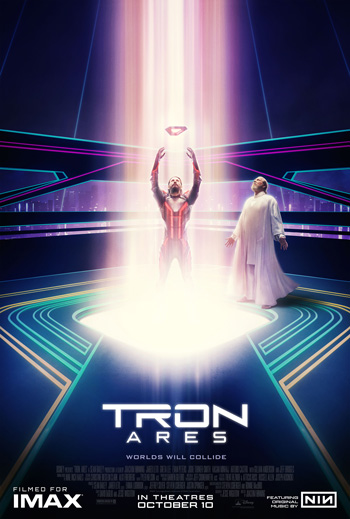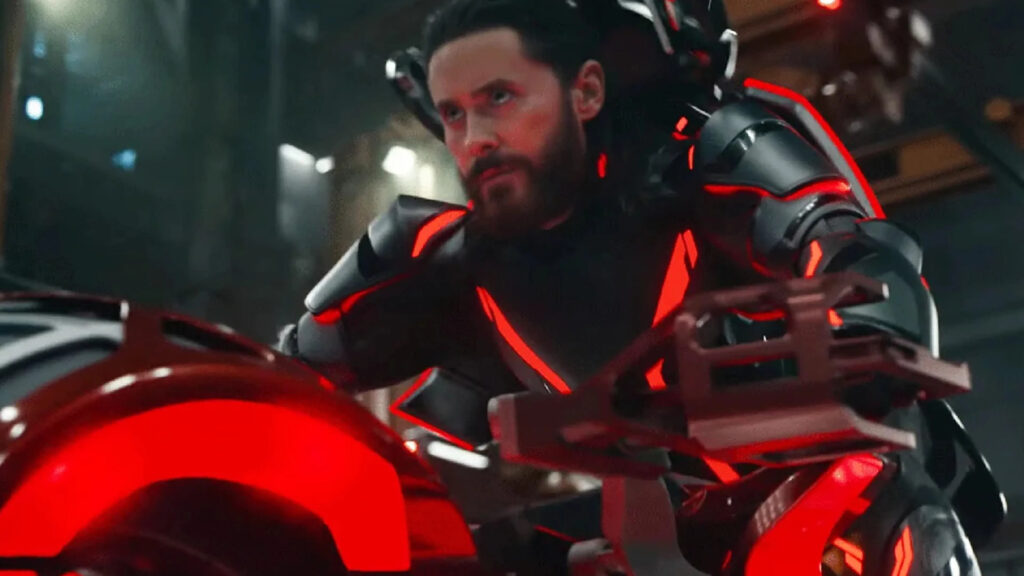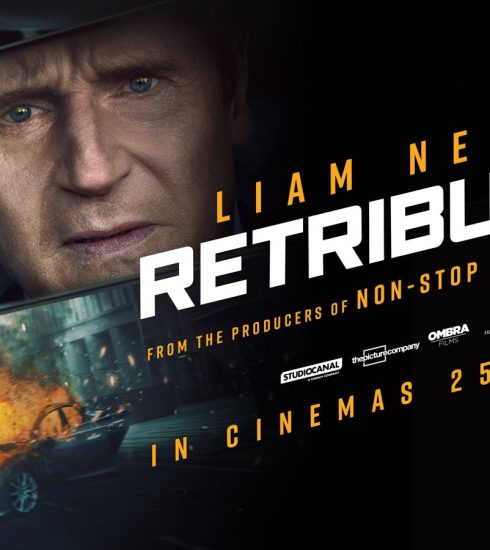Movie Review: TRON: Ares
Tron: Ares is not a film. It’s an absolutely brilliant soundtrack by Nine Inch Nails, with some visual elements getting in the way. The music is loud, aggressive, adventurous, soaring, gritty and emotive, everything the actual movie is not.
The original Tron film is a 1980s Disney classic, loved at least for its early Computer Generated Image (CGI) animations of The Grid, a proto-cyberspace computer world into which Jeff Bridges’ Flynn is sucked, to join forces with the heroic programme Tron to fight the dastardly villain of the story.
2010’s sequel, Tron: Legacy, was a (to me, not necessarily financially) successful follow-up, with its dazzling design, Daft Punk music, and de-aged Jeff Bridges. What it particularly got right was its attempts to give proceedings some brains, with explorations of mortality, power, AI self-creation, the search for perfection, and even the idea of God as a ghost in the machine.

You’d think that, given our current times of anxiety of AI and corporate power and the erosion of democracy and human rights in the face of both, there was a huge opportunity for Tron to delve into the weightier themes as the best sci-fi has always done – sadly, that sort of nuance is sorely missed here.
Director Joachim Rønning (Pirates of the Caribbean: Dead Men Tell No Tales, Maleficent: Mistress of Evil) is no Denis Villeneuve. He’s more akin to Michael Bay, and indeed Tron: Ares has a lot in common with the Transformers films in its affectless posturing, empty action sequences, annoyingly cryptic characters and a total lack of cool.
The only wise thing he does here is turn the music way up. Somewhere under it, is the story.
And it’s about Ares, a soldier programme played by Jared Leto, who is brought from The Grid into the real world by dastardly young CEO Julian Dillinger (grandson of the original bad guy, played by Evan Peters from American Horror Story), to the slight annoyance of his mother (Gillian Anderson). The catch is, Ares can only exist for 29 minutes on earth.
Meanwhile, Dillinger’s rival CEO at ENCOM, Eve Kim (Greta Lee) has uncovered the Permanence Code, which will allow things generated from computers to exist properly in the real world as living things; she, being the goodie, wants to grow trees and feed the world, not destroy it.
Anyway, this cues lots of chasing around after the code – which despite all the technology around, is kept on a data stick inside Eve’s pocket for one lightcycle chase – and various jumpings in and out of The Grid. Early on, without much preamble, Ares decides he wants to be human. Ares and Eve have to combine forces and mildly flirt in order to ward off the evil programmes that encroach a tad on reality.
Mostly, this is about a brooding Jared Leto. It is particularly strange to do this given he’s hardly everyone’s favourite pin-up, but there he is with his hair and his leather, forever looking into the distance and saying things like, “Who knows where I’ll go next…”
What was a great chance to at least have some fish-out-of-water fun with the character – as an AI who has access to all the information in the world who, as with ChatGPT, would be just a little off with its human aping – but the only sign of this is that Ares likes 80s things. Really, the film can’t resist just trying to make Ares cool. Shouldn’t he get social cues wrong as a computer program comes to life? Not this guy, he smoulders over motorcycles and fist bumps trembling nerds. Most disappointingly, he barely even fights. Leto, also a producer on the film, seems intent on delivering a super-soldier who just wants to hang out.

Yes, they’ve slung in bits of Blade Runner, some of the super-soldier musing on mortality in the rain (my favourite Ares line in an atrocious script is when he goes, “A wise man once told me it should be called the ‘Impermanence Code’. That’s the thing about being human: it’s not permanent.” Thanks for explaining that. Truly.), and some bits of Terminator and Dune, but it’s all very unconvincing: Even the money shot moment, where the Space Invader-style ships from the first film move in on a city, ends with ‘destruction’ so light that barely a window gets broken, as the mighty war machines mince between buildings.
It’s all a bit of a waste. Greta Lee is likeable as ever, but generally she’s asked to do nonsensical running sequences, which is a bit odd; you don’t ask Usain Bolt to act in comedy-dramas, do you? Jodie Turner-Smith is a strong presence but underused as another super-soldier, Athena. Peters chews some scenery as he waits for decent dialogue. Anderson can’t seem to figure out what her character is doing there, and neither can we.
In many ways Tron: Ares represents the best and worst of blockbuster cinema. The huge marketing spend has successfully whipped up excitement, all its imagery is strong, and it genuinely feels like an event – there’s a buzz as you take your seat. But then the deflation comes and you realise that all the ad spend in the world can’t make a film good. It feels both expensive and cheap; why spend a fortune on selling it, if you won’t also splash out on a creative visionary to drive it to excellence?
But look, this is all working under the presumption that this is a film, which it isn’t. It’s a Nine Inch Nails soundtrack. If you do see it, go to a cinema where they turn the music up to 11. And then close your eyes.
4/10. Really wanted to like this one. Banger of a Soundtrack though!
Boluwatife Adesina is a media writer and the helmer of the Downtown Review page. He’s probably in a cinema near you.






